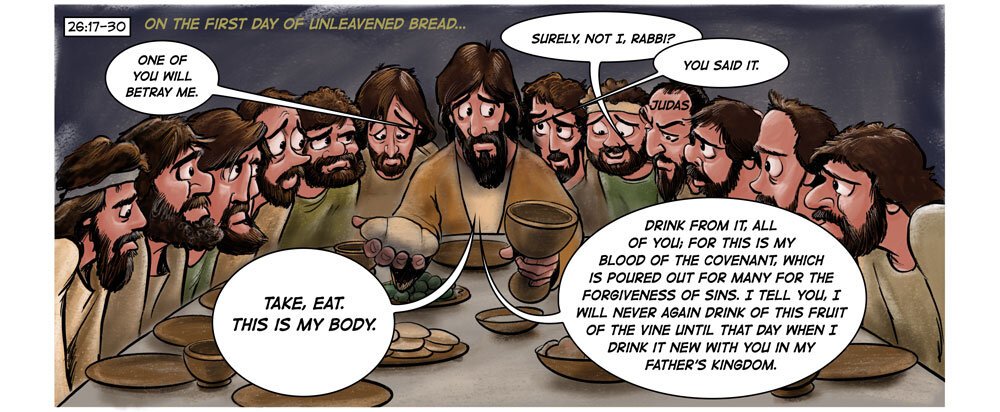Grow Guide | July 4
Renewing Worship | Communion
Connection
When does your family celebrate special meals together? How does the food reflect the occasion?
How, if at all, did you experience the sharing of communion (the bread and the wine/juice) in church for the first time?
Context
This week we continue our series “Renewing Worship” by looking at the practice of sharing communion in worship. It is our weekly practice that a pastor stands before the congregation and speaks “the words of institution” (on the night in which he was betrayed...) and offers bread and wine/juice to the congregation. We say to each other as we serve it, “this is the body of Christ” and “this is the blood of Christ, shed for your forgiveness.”
Why do we do this? Where did it come from? Why does it matter?
Look at the Book
Read 1 Corinthians 11:23-26. Who established the practice of sharing bread and wine?
The Apostle Paul is writing this letter to the church in Corinth. Read the passage before (1 Corinthians 11:17-22) and the passage after (1 Corinthians 11:27-34). What is the issue that the Corinthian church is having around the practice of communion?
The actual story of Jesus sharing his last Supper with his disciples can be found in Matthew 26:17-29, Mark 14:12-25, and Luke 22:7-23. Take the time to read all those passages if you can. If not, read one of them. What meal was Jesus actually sharing with his disciples?
The story of the Passover meal can be found in Exodus 12-13. It was a meal that helped the Jews remember God’s salvation from slavery in Egypt. Jesus took that meal and applied it to himself. In what ways is Jesus’ body and blood like the story of God delivering the slaves from Egypt?
Communion is called a sacrament. It is the combination of God’s word with ordinary things, like bread and wine. In Lutheran theology, we say that Jesus is “in, with, and under” the bread and the wine. What do you think this means?
Taking it Home
Paul had some harsh things to say to the church in Corinth about the way they were treating each other during the communion meal. In what ways might we be guilty of similar things in our own practice of communion?
What are some practical ways that we can prepare our hearts to receive communion together in worship?
If a friend, who was not familiar with the church, asked you to explain, in simple terms, “What is communion and why do you do it?” How would you respond?

